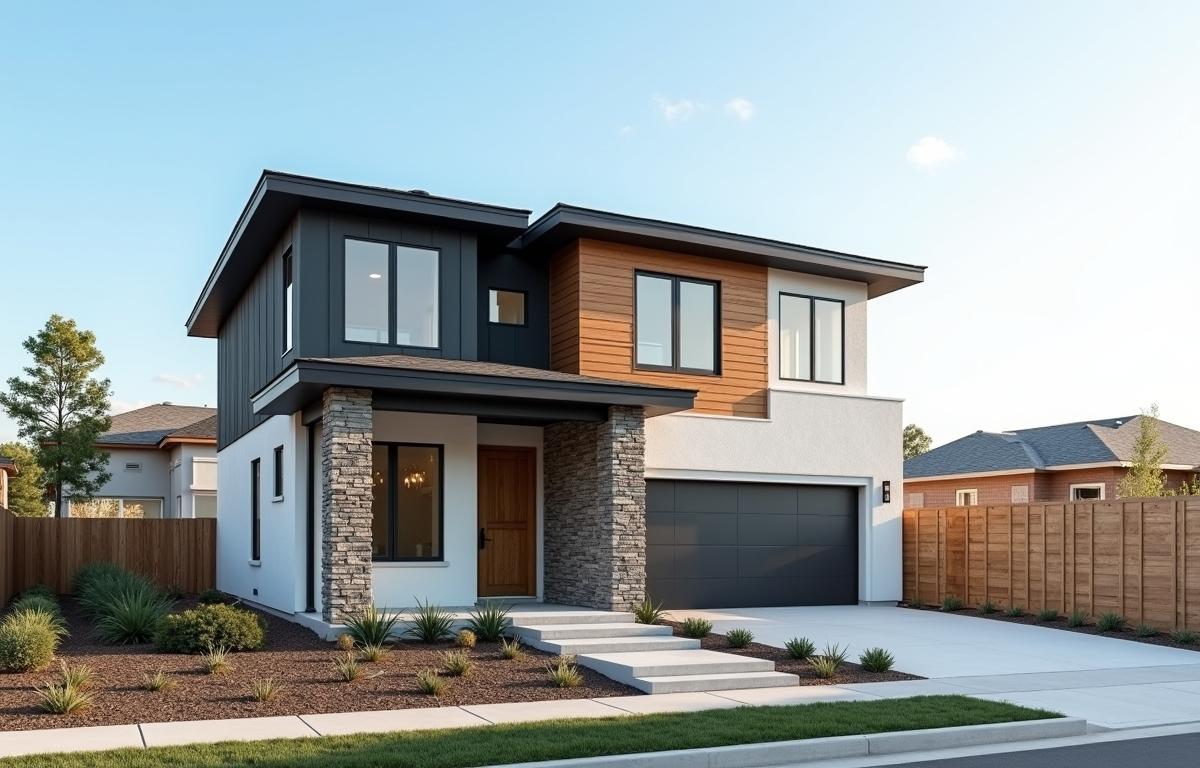
What to Know Before Buying a New Construction Home
Buying a new construction home means understanding its potential and your vision for it. There’s something exciting about being the very first owner and knowing that everything under the roof is fresh and untouched. But before you finalize that contract, it’s wise to delve beyond the shiny marketing brochures. Builders often tempt buyers with modern finishes, energy-efficient promises, and slick floor plans, yet the process isn’t always as straightforward as it seems. By diving deeper into topics like builder reputation, financing, and long-term neighborhood prospects, you’ll be better equipped to ensure that you’re making a sound decision. It’s not just about picking out cabinet colors; it’s about securing a home that fits your lifestyle and protects your investment for years to come.
Contents
Research the Builder Carefully
Not all builders share the same level of craftsmanship or business practices. Some focus on quick, high-volume construction, while others prioritize detailed workmanship and solid customer care. Taking the time to investigate a builder’s track record may save you from future headaches.
Ask for references or read through existing homeowner reviews if possible. Pay attention to any lingering complaints about missed deadlines, structural issues, or difficulties with warranty repairs. While a few negative comments might not be a deal-breaker, recurring patterns of unresolved concerns are worth noting.
Check for Builder Certifications
Some builders hold specific certifications or belong to professional associations. These organizations often establish guidelines for quality and ethical standards. A membership can hint that the builder’s approach to projects is a step above the rest. However, it’s equally important to verify any claimed accreditations. Cross-check those details directly on association websites to confirm authenticity.
Financial Considerations for Your New Build
The financial process for a new build can look different than purchasing a pre-owned house. Lenders may have special requirements for properties that haven’t been completed or appraised yet. Understanding these nuances helps you avoid delays and unexpected costs.
Sit with a mortgage professional who has experience working on new build transactions. They can guide you through loan products tailored to construction timelines. Banks often release funds at different project stages, so your typical mortgage process might need a bit more coordination. Make sure to ask about rate locks and how changes in market conditions could affect your loan rate if there are construction delays.
Watch Out for Extra Fees
New developments sometimes come with homeowner association (HOA) fees, property taxes adjusted for newly built structures, and special assessments if the area is implementing fresh amenities. These costs can push your monthly expenses beyond what you initially planned. Always analyze the breakdown of fees before signing contracts, and remember that some charges may increase over time as the community grows and requires more upkeep.
Construction Timeline and Inspections
Patience is key when it comes to a new build. While the idea of a freshly completed place is thrilling, the reality is that construction is often subject to weather issues, labor shortages, and supply delays. Keep that in mind if you have a strict timeline for moving out of your current home.
It’s smart to budget extra flexibility into your move-in date. Let’s say the builder anticipates finalizing the project by late fall consider adding a few weeks to that estimate. Even small holdups can push completion into the next season. Keeping an open mind and solid plan B for temporary housing can help if the building process runs behind schedule.
Schedule Multiple Walk-Throughs
Try to visit the site at different phases of construction. Early walkthroughs can reveal framing or wiring inconsistencies before any drywall goes up. A second or third look might uncover minor cosmetic details that need addressing, such as uneven trim, misplaced outlets, or paint drips.
Make it a practice to list any concerns and share them with the builder immediately. Staying proactive can help resolve issues quickly and keep you on good terms with the crew working on your future home.
Securing the Right Design and Layout
When you buy a brand-new place, you often have a say in picking layouts, finishes, and special features. This freedom can be wonderful but also overwhelming. While it’s tempting to go all-in on high-end upgrades, always weigh how they’ll fit your budget and your long-term plans.
Upgrades and Finishes
Builders typically offer a menu of upgrades, from premium countertops to advanced smart-home systems. Make sure to ask how each upgrade might affect construction timelines or potential resale value down the road. Some enhancements may not yield a good return if you plan to sell within a few years. Others, like energy-efficient windows or better insulation, might help you save on monthly bills and attract future buyers interested in lowering utility expenses.
Another detail to note is whether the model home reflects standard inclusions or deluxe extras. That showroom-like kitchen might be showcasing the highest-end tile, appliances, and cabinets, so clarify which features come with the base price. Go line-by-line to understand every detail of the upgrade costs.
Considering Resale Potential and Neighborhood Factors
While you’re likely purchasing this property for yourself, resale potential truly matters. Life can change in unexpected ways new job offers, family expansions, or a desire to be closer to loved ones can shift priorities. Even if you intend to stay put for several years, having a home that’s attractive to potential buyers is never a bad idea.
Check the broader development plan for the area. Are there shops, schools, or recreational facilities scheduled for development? Infrastructure growth can boost property values and reduce future commute times. It also impacts quality of life, whether you need convenient groceries or family-friendly parks.
Community Amenities and Builder Plans
Some modern subdivisions promise everything from community pools and clubhouses to jogging paths and dog parks. These perks can be a significant plus if they align with your lifestyle. However, keep in mind that amenities often come with monthly or yearly fees, and you should verify how well they’re maintained.
Always confirm whether your builder has plans for additional phases in the community. Ongoing construction in your neighborhood for several years could limit your privacy or create noise disturbances, which might matter if you work from home or value peaceful surroundings.
Read the Contract Carefully
A new construction contract can be detailed and somewhat intimidating, but it’s a document you need to fully digest. Make notes on any confusing clauses. Builders often include provisions for construction delays, allowances for certain materials, and clauses addressing changes in design or layout.
Look out for details on warranties, too. A solid warranty can serve as a safety net if defects or system failures surface within the first few months or years. Typically, warranties cover major structural elements for a specific period, while shorter timelines may apply to finishes and cosmetic details. If any part of the contract seems vague or overly complicated, consult with a qualified real estate attorney for peace of mind.
Be Ready to Negotiate
Some buyers assume everything in a new construction contract is rigid, but that’s not always the case. Depending on the market and the builder’s sales goals, there might be room for negotiation. It could be upgrades, closing costs, or adjustments in the move-in date that the builder can accommodate. Don’t hesitate to ask for what you need just do so politely and with a clear sense of priority.
Keep Future Maintenance in Mind
Even the most solidly built properties require ongoing care. New homes come with their own set of tasks, such as maintaining landscaping, monitoring the foundation for cracks, and ensuring the HVAC system is regularly serviced. The excitement might tempt you to believe that a newly constructed home will stay pristine with minimal effort, but that’s rarely the case.
Keep track of recommended maintenance schedules. Seasonal checkups can help you catch small issues before they turn into larger headaches. If your builder provides a guide or schedule, use it as a reference point. Staying on top of upkeep can help you preserve the value of your purchase and avoid more significant repair bills later.
Don’t Overlook Energy Efficiency
Modern builders often highlight sustainability features and lower utility costs. Double-check that these claims match what’s actually installed. Look for evidence of proper insulation, high-efficiency appliances, and windows designed to reduce energy loss. A well-insulated attic or a tankless water heater can make a big difference on your monthly bills.
Sustainability features may also include drought-resistant landscaping or solar panel options. While these could increase your upfront costs, they might pay off in the long term and boost the home’s appeal to future buyers who value eco-friendly solutions.
In the end, the process of buying a freshly built property is a blend of excitement and diligence. Taking the time to research the builder, understand your financing, keep an eye on construction progress, and plan for upkeep will protect both your wallet and your peace of mind. If you maintain a clear sense of what’s truly important to you and remain prepared for potential delays, you can land in a place that feels uniquely yours from day one.


